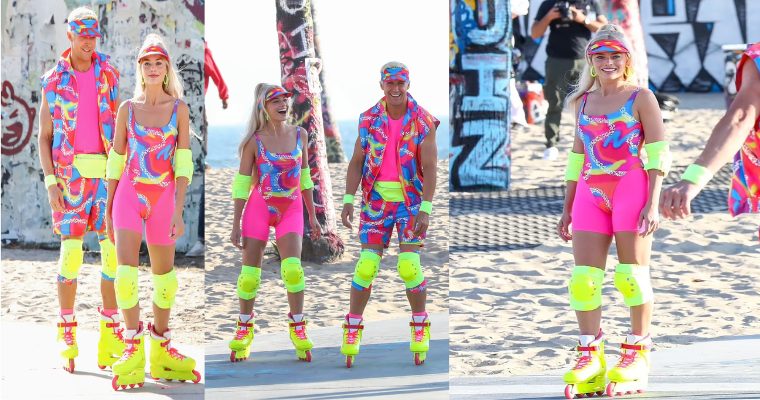Leonardo DiCaprio — now that is a movie star name. You say that name and everyone including their grandmother knows who he is. Everyone has their connotations about him; their opinions, their favourite performance and their favourite film, and most millennials likely had a 90s Leo poster on their bedroom wall growing up.
Whether or not you race to the cinema when his name appears in bright lights, few could deny that he is one of the greatest actors of his generation. Rightly refusing to anglicise his name to Lenny Williams by an agent, DiCaprio has forged a long and brilliant career over the past thirty years. However, it is 2006 that remains his defining and most significant year — one that laid the groundwork for an eventual Oscar win in 2016 for Alejandro G. Iñárritu’s The Revenant.

In 2006, DiCaprio played the role of undercover cop Billy Costigan in Martin Scorsese’s The Departed (their third collaboration together) and, later, Rhodesian mercenary and diamond smuggler, Danny Archer, in Blood Diamond, directed by Edward Zwick. These two roles were a definitive turning point in DiCaprio’s career as they served as his transition from teen heartthrob to mature character actor. Prior to 2006, DiCaprio already had an impressive and varied career — a young Tobias Woolf; Johnny Depp’s mentally disabled younger brother; gay French poet Arthur Rimbaud; King Louis XIV; Louis’ twin; the fateful Romeo; a con man on the run, and a drug-addicted Jim Carroll.
“LEO-MANIA” AND HOWARD HUGHES
Baz Luhrmann’s Romeo + Juliet and, most of all, James Cameron’s epic, Titanic, led to “Leo-mania” and his pretty boy looks went on to rule the 90s. His star rose like never before and DiCaprio became, quite literally, the King of the World. There was no stopping him. A slew of critically acclaimed films and performances followed but DiCaprio was still seen as the boyish heartthrob who stole Rose’s heart and not quite the serious actor he desired (and deserved), despite the remarkable career already established for someone so young. The Aviator, another Scorsese collaboration, marked another pivotal moment in his career, one which would lead to The Departed and Blood Diamond.
Starring as Howard Hughes, the business magnate come film director, DiCaprio – 29-years-old at the time – delivered a complex and brilliant performance, which earned him his second Oscar nomination for his portrayal. DiCaprio’s work in The Aviator was challenging as the role spanned from Hughes’ days as a young aviation entrepreneur to an aging, reclusive director, crippled by Obsessive Compulsive Disorder. The film sparked a new interest in DiCaprio as he began to shed his young, pretty boy image and emerged as a slightly less polished, yet more self-assured, actor. The multifaceted role of Howard Hughes was just what DiCaprio needed and it became an important stepping-stone for his later work. To this day, it remains one of his greatest performances.

An argument could be made for The Basketball Diaries; however, The Aviator was the first time DiCaprio has truly carried an entire film as a leading man. Following Gangs of New York — his first collaboration with Scorsese in 2002, which was a major boost to his career as a maturing actor— The Aviator fell solely on his shoulders and, unlike Gangs of New York or any role that came before, DiCaprio was playing a man — and a titan within American history — and not just a young boy coming-of-age.
He was escaping the young kid with matinée idol looks who was always just on the brink of adulthood. Hughes, while in the beginning was young and ambitious with grandiose ideas, matured rapidly as he ran his own business empire from such a young age. He also faced undiagnosed medical issues and dealt with both professional and personal loss all the while under the scrutiny and spotlight of the media. Actor and character had begun to blur and the responsibility of Hughes’ life was a big step up for DiCaprio’s career.
It’s easy to forget what an incredible career DiCaprio had carved out for himself before Titanic made him a mega-star and The Academy forgot that he existed until 2016. Before the age of 22, he had already worked with Robert De Niro, Ellen Barkin, Johnny Depp, Juliette Lewis, Gene Hackman, Sharon Stone, Russell Crowe, Lorraine Bracco, Meryl Streep, and Diane Keaton. De Niro famously called his long-time collaborator Scorsese, after acting with DiCaprio in This Boy’s Life, telling him to check this kid out, eventually leading to Gangs of New York almost a decade later. DiCaprio has said that De Niro is one of his biggest inspirations after his father took him to see Midnight Run when he was only nine-years-old.

In June 1998, Nancy Jo Sales published the now infamous New York Magazine article: “Leo, Prince of the City” and the Pussy Posse was born. At 24-years-old, Leo, as he was now known worldwide, was Hollywood royalty and every studio in the world was clawing themselves for a piece of him. Riding the success of Titanic, yet unconsumed by celebrity, DiCaprio smartly opted to eschew any further “heartthrob” roles in favour of nuanced character parts and the opportunity to work with extraordinary directors and cast ensembles. His career is mostly defined as pre- and post- Titanic but pre- includes an incredibly fearless turn in The Basketball Diaries and a beautifully sensitive performance in What’s Eating Gilbert Grape — his first Oscar nomination at just 19-years-old.
SHEDDING HIS JACK DAWSON SKIN
DiCaprio, over the years, has held his own alongside some of the giants of cinema: Robert De Niro, Jack Nicholson, Tom Hanks, Al Pacino, Meryl Streep, and Daniel Day Lewis. He worked with this calibre of actor before he hit superstardom; however, it was no longer the student and the master; DiCaprio and his fellow cast mates were now equals. By the time The Departed and Blood Diamond roll around in 2006, DiCaprio was just starting to shed his pretty-boy-Jack-Dawson skin and The Aviator provided a fresh set of eyes on his developing career.
Billy Costigan and Danny Archer are both widely different characters and the fact DiCaprio portrayed both within the same year was really a blessing in disguise, as the contrasting characters demonstrate his extensive range beautifully. Billy is a good guy thrown into a bad situation and forced to do bad things, while Danny is a bad guy who does bad things and, generally, doesn’t give a shit. There is more than meets the eye with both characters but Danny, in particular, is a complicated man who struggles to express that he does, in fact, have a heart.

After his flirtation with the dark side in The Departed, critics, including me, felt that Costigan lent itself to the grittier character of Danny Archer later in the year. Danny is a character drifting through a ravaged Sierra Leone. He’s a resourceful con artist who comes alive when he’s backed into a corner and has seconds to invent a way out. He’s wiry and brittle and unafraid to tell it like it is. He understands the world and knows how to survive and the horrors of war just roll off him — or at least appear to — like dirt.
Claudia Puig of USA Today called DiCaprio’s performance, “The first time the boyish actor has truly seemed like a man on film.” Danny Archer is a complex role that isn’t initially apparent but DiCaprio comes alive on screen in a way we’ve never seen him do so before. It is unsurprising that he earned his third Academy Award nomination for the film.
Billy Costigan, on the other hand, is a state trooper working undercover in Boston to bring down mob boss Frank Costello (Jack Nicholson). DiCaprio describes Costigan as someone in a “constant 24-hour panic attack.” Costigan is treading a fine line, always moments away from being discovered, killed or tortured. It’s a high-wire act and Costigan is ready to explode or crumble at any moment. He witnesses horror but, unlike Danny, Billy carries each and every moment and we watch as they furrow away inside his brain.
When he meets Dr. Madden (Vera Farmiga), a police psychiatrist as part of his probation, Costigan struggles to open up as he has spent months training himself to keep his feelings and emotions under wraps to prepare to be someone else. However, Madden forces him to confront himself again and Costigan finally allows himself to be vulnerable, if only in front of her. DiCaprio is excellent at portraying these two sides; the surly, fiery Costigan that is a part of Costello’s crew and must check his morals at the door, and the quieter, emotionally present Billy that cares for Madden and begs for Captain Queenan (Martin Sheen) to help him out of this life.

In The Departed, DiCaprio’s face looks heavy, his eyes exhausted, like he hasn’t slept in days or even weeks. His early career was made up of playing mostly bright-eyed, earnest male ingénues but, in 2006, Danny Archer and Billy Costigan shed a different light on the type of actor DiCaprio could be. Ann Hornaday of The Washington Post, states in her review of Blood Diamond that, “Between this movie and “The Departed,” the 32-year-old actor seems to have enjoyed a growth spurt this year; his baby face has given way to a new fullness and gravitas, and he wears the new heft well.”
COMING FOR THE LITTLE GOLD MAN
DiCaprio followed both hit films with Ridley Scott’s action thriller Body of Lies and Sam Mendes’ Revolutionary Road, which reteamed him with Titanic co-star and best friend Kate Winslet. Revolutionary Road is, perhaps, his most powerful performance as a 1950s husband desperate to escape his monotonous suburban existence with his wife (Winslet) and children. The reunion of ‘Kate and Leo’ was highly anticipated and both are astonishing separately, but absolutely breathtaking together.
Another Scorsese collaboration followed with Shutter Island, which featured a wonderful supporting cast anchored by DiCaprio’s emotional lead performance. However, Shutter Island, and pretty much everything else in 2010 was overshadowed by Christopher Nolan’s sci-fi actioner Inception; if DiCaprio wasn’t already King of the World, Inception would have propelled him to God-like status. Clint Eastwood’s underwhelming biopic J. Edgar followed in 2011, and then DiCaprio surprised everyone as a charming yet abhorrent villain in Quentin Tarantino’s Django Unchained; a performance forever immortalised in memes.
Baz Luhrmann’s adaptation of The Great Gatsby followed in 2013 — a passion project for both actor and director — with DiCaprio stepping into Jay Gatsby’s shoes, alongside childhood best friend Tobey Maguire as Gatsby’s only friend, Nick Carraway. 2013 proved to be one of the actor’s best years when The Wolf of Wall Street swiftly followed a few months later — the film marked his fifth collaboration with Scorsese.
The Wolf of Wall Street was a major commercial success and went on to become Scorsese’s highest-grossing film ever. DiCaprio’s performance as Wall Street stockbroker Jordan Belfort is all fists and fury, with laughs a mile a minute. He has never lacked so much self-awareness and been so free in a role, he is dynamic from the first to last frame. If only he wasn’t up against Matthew McConaughey at the Oscars — who was at peak McConaissance at the time — the little gold man would have been his.

Alejandro G. Iñárritu’s The Revenant was his big moment in 2015 and, finally, in 2016 he won the elusive little gold man statuette! It was a moment film fans had all been waiting for and memes across the world had been created for this very moment. We all cheered. Finally, Leo was truly the King of the World. The Revenant may not be his greatest role to date but his performance is extraordinary and, unfortunately, like so many best actor wins it wasn’t quite the role he should have won it for. But do we care? Not really.
GOD-LIKE STATUS
In Tatiana Siegel’s profile in The Hollywood Reporter—ahead of the release of Once Upon a Time in Hollywood, his second collaboration with Tarantino — she explores how DiCaprio has become the last great movie star, describing him as a “Hollywood unicorn, able to gross hundreds of millions of dollars without wearing a cape, wielding a lightsaber or even having an agent.”
DiCaprio distinguished himself from his peers early on in his career, choosing character-driven roles alongside some extraordinary fellow cast members. Following each success, he began to make his choices based on directors and, by age 30, he had already worked with Steven Spielberg, Sam Raimi, Baz Luhrmann, James Cameron, Danny Boyle, and twice with Scorsese. His selectiveness of projects has led to a career that most actors dream of, but few have achieved the acclaim and consistent bankability that DiCaprio has maintained over his three-decade career.
In an industry oversaturated with films and television shows in cinema and on numerous streaming platforms, DiCaprio has remained choosy and often spends years in-between projects. However, if you look at his filmography, there’s hardly a dud to be found. Tarantino has said that, “One of the things I like about Leo is he just doesn’t plug himself into two movies a year.
He kind of stands alone today, like Al Pacino or Robert De Niro were in the ‘70s, where they weren’t trying to do two movies a year — “they could do anything they wanted, and they wanted to do this. So that means this must be pretty good.” An announcement of a new Leonardo DiCaprio film is like an event and, after all these years, his star power gets people in the cinema, no matter the film. There are few actors today who have such power, let alone maintained their global appeal for so long.

Before their first collaboration together, Scorsese was struggling for inspiration and he has credited DiCaprio for reignited his passion for filmmaking, telling The Hollywood Reporter,“He became the perfect muse. I was rejuvenated again. A key thing about Leo—and I always tell him this—is he’s a natural screen actor.” Django Unchained producer, Stacey Sher, echoed his thoughts by adding: “I think everybody thinks of him as the greatest actor of his generation first, who happened to become the biggest movie star of his generation.”
After 30 years in the industry, DiCaprio is a global mega-star like no other. After the insane, unparalleled success of Titanic, which propelled him to stratospheric heights and sealed his fate as a star, he has carved out a career that has showcased his immeasurable talent no end.
He is not perfect and neither is his filmography (no one’s is) but, even in times when we, foolishly, thought his star had begun to wane, he has never failed to surprise us; hello, Django Unchained. Intense yet subtle, comedically underrated, charming, and engaging, DiCaprio has proven over the years that he is an expert at emotion and displays a tremendous physicality within his roles. It has been 13 years since both The Departed and Blood Diamond were released and both the films and his respective performances still stand-up.
DiCaprio may rule Hollywood and have an unprecedented amount of power but his films are all we really care about and, boy, do they deliver. We may have to wait years in-between each project, but it’s well worth the wait. Besides, few have gone toe-to-toe with Jack Nicholson and been left standing.
What is your favourite Leonardo DiCaprio performance? Let us know in the comments below.








